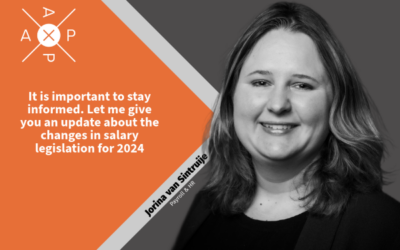Getting a mortgage in the Netherlands- a comprehensive guide

Moving to a new country is an exciting adventure, but it also brings its fair share of challenges, especially when it comes to finding a place to live. For expats in the Netherlands, buying a home means understanding the ins and outs of getting a mortgage in a foreign land.
In this guide, we break down the requirements of getting a mortgage in the Netherlands in simple terms. Whether you’re dreaming of a cozy apartment in Amsterdam or a house in the countryside, it’s essential to know the basics. We’ll help you to navigate the Dutch mortgage system without the confusion.
To get a mortgage in the Netherlands, you need to meet two main requirements. First, you must be living in the country. Lenders prefer applicants who are already residents, showing a stable connection to the local community. Second, having a valid residence permit or a EU citizenship is crucial. This document proves that you’re legally allowed to live and work in the Netherlands, assuring lenders of your eligibility.
In addition to residing in the Netherlands and having a valid residence permit, there are two more essential requirements when it comes to applying for a mortgage. Firstly, having a permanent work contract or a letter of intent is necessary. This rule applies universally, not just to expats, emphasizing the stability of your employment situation. Lenders typically prefer applicants who can showcase a secure income source. Secondly, if you plan to use your savings to finance a portion of the house, it’s mandatory to transfer those funds from a Dutch bank account. Therefore, ensuring you have a Dutch bank account is crucial for managing your finances and meeting the mortgage criteria.
Additionally, it’s essential to understand the restrictions associated with a regular mortgage. Typically, with a standard mortgage, you can only purchase a property for self-occupancy. Renting it out, also known as subletting, is generally not allowed, except in special circumstances such as extended vacancies or transitional periods. Even in these cases, permission from the mortgage provider is required, and the rental period is limited.
Expat employees meeting specific criteria can benefit from the 30% rule, which allows them to pay less tax on up to 30% of their salary for the first five years in the country. You can read uabout this scheme here. Most mortgage lenders incorporate this tax advantage into their calculations, enabling you to borrow a higher amount during this period.
If you live in the Netherlands but work for an employer in another country, receiving payment in a foreign currency, it’s crucial to note that income from abroad is generally considered to be 90% of its actual value in mortgage lenders’ calculations. Consequently, this may limit the amount you can borrow compared to those with incomes in Euros.
Finally, it’s important to bear in mind that the Dutch housing market is currently experiencing high demand. This leads buyers to often offer more than the initial asking price set by sellers or the current market value. When purchasing a house, the market value significantly influences the process. Your maximum mortgage amount is determined by the concept of Loan-to-Value (LTV), which stands at 100%. This implies that your mortgage cannot surpass the property’s market value. In other words, the loan amount is capped at the current worth of the home you intend to buy.
When buying a house in the Netherlands, there are much more costs to consider other than the price of the house. We will talk about this in the next article.
Are you considering moving to the Netherlands and setting up a company? We are here to assist you!






